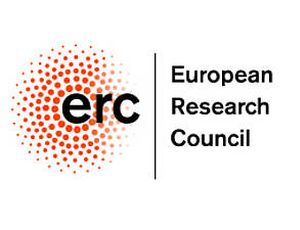
Dr Tomasz Żuradzki from the JU Faculty of Philosophy and Dr Michał Németh from the JU Faculty of Philology have been awarded with the most prestigious grants in Europe – the European Research Council grants. They have received nearly 3 million euro for their 5-year-long projects, which will be conducted within the framework of the Horizon 2020 programme. This year, only four of these grants were awarded to scientists working in Poland.
ERC grants allow scholars to realise their own, innovative research projects. ERC believes in a bottom-up approach – it does not define the subject of research. Researchers can freely submit projects from all academic areas. They are also unrestricted in their choice of collaborators and institutions in which they would like to conduct their work. The projects’ leaders are guaranteed to remain independent in their pursuits and are in charge of all of its aspects.
The European Research Council awards grants for three main types of projects lasting up to five years. Starting Grants, which are the ones received by the JU researchers, are available to scholars who completed their PhDs from two to seven years before applying. The maximum amount of funds per project is capped at 1.5 million euro.
‘We treat the ERC grants as a breakthrough and a sign of appreciation of our researchers’ work. I’m very happy they decided to take part in the internal JU support programme for researchers attempting to apply for an ERC grant. It is my hope that we helped them and fulfilled our role as the university administration. After all, it’s our duty to support our scientists, particularly the best ones. The Jagiellonian University has now joined the elite group of Polish higher education institutions that can take pride in employing the recipients of these prestigious grants. I very much hope that this success will encourage others to apply for the grant in the coming years’, said Prof. Stanisław Kistryn, JU Vice-Rector for Research and Structural Funds.
In collaboration with researchers from the University of Uppsala, Dr Michał Németh will conduct a project entitled (Re)constructing a Bible. A new approach to unedited Biblical manuscripts as sources for the early history of the Karaim language. Eastern European Karaims are the sole representatives of Karaite Judaism in Europe. Their native tongue is a severely endangered Turkic vernacular, but merely a fraction of its surviving written heritage has entered scholarly circulation. In particular, the Karaim translations of the Hebrew Bible – the oldest written records of this language – still await investigation. As a result, on the one hand, the Karaim data cannot be effectively exploited in historical-comparative studies and, on the other hand, there is no edition of the Bible that Karaims could read in religious practice. The existing translations are locked in sources written in Hebrew script – a script which Karaims cannot read any more. What makes this project crucial to sustaining this endangered culture is the fact that Karaite Judaism is based on the recognition of the Hebrew Bible alone as the supreme authority in religious law and theology.
The basis of the project will be a comprehensive edition of the entire Karaim Bible based on carefully selected sources from the 15th–20th centuries. The sources will receive grammatical and palaeographical descriptions. Beyond that, it will be investigated whether the Biblical manuscripts and the Karaite semi-cursive script types belong to one or multiple scribal traditions in order to better understand the way these translations were created. The Karaim texts will be translated into English and efforts will be made to discover further manuscripts.
The other project, Deep uncertainties in bioethics: genetic research, preventive medicine, reproductive decisions will be conducted by Dr Tomasz Żuradzki, head of the JU Interdisciplinary Centre for Ethics. The project aims to reinterpret ethical discussions on current advances in biomedicine: instead of understanding bioethical positions as extensions of classical normative views in ethics (consequentialism, deontologism, contractualism etc.), it interprets them more accurately as involving various normative approaches to decision making under uncertainty.
The main drive behind this project is the rapid progress in biomedical research combined with new kinds of uncertainties. These new and ‘deep’ uncertainties trigger specific forms of emotions and cognitions that influence normative judgments and decisions. The main research questions that will be addressed by conceptual analysis, new psychological experiments, and case studies are the following: how do the heuristics and biases (H&B) documented by behavioural scientists influence the formation of normative judgments in bioethical contexts; how to demarcate between distorted and undistorted value judgments; to what extent is it permissible for individuals or policy makers to yield to H&B. The hypothesis is that many existing bioethical rules, regulations, practices seem to have emerged from unreliable reactions, rather than by means of deliberation on the possible justifications for alternative ways to decide about them under several layers and types of uncertainty.
Of the four total grants awarded to Polish researchers, the other two went to Dr Magdalena Winiarska from the Medical University of Warsaw and Dr Piotr Achinger from the Polish Academy of Sciences Institute of Mathematics. The full list of grant holders can be found at erc.europa.eu.





